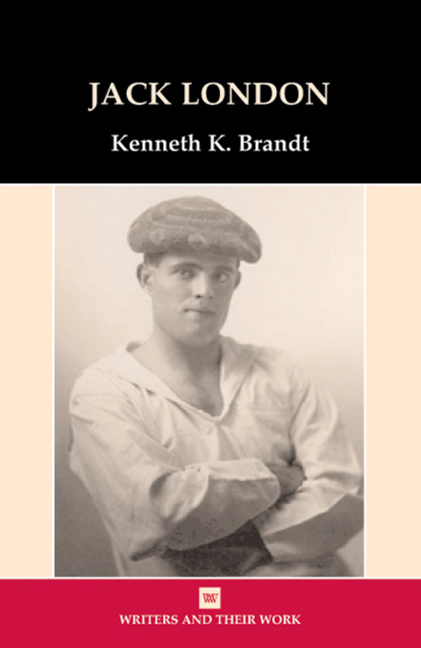Book contents
- Frontmatter
- Contents
- Biographical Outline
- Abbreviations
- 1 Jack London: An Adventurous Mind
- 2 Getting the Perspective: The Northland Stories
- 3 Into and Out of the Wild: The Call of the Wild and White Fang
- 4 Class Struggle: Socialist Writings and The Iron Heel
- 5 Individualism and its Discontents: The Sea-Wolf and Martin Eden
- 6 Free and Determined: Questions of Agency in The Road and The Star Rover
- 7 Sailing West: The Pacific Stories
- 8 Coda: Literary Legacy and Scholarship
- Notes
- Select Bibliography
- Index
1 - Jack London: An Adventurous Mind
- Frontmatter
- Contents
- Biographical Outline
- Abbreviations
- 1 Jack London: An Adventurous Mind
- 2 Getting the Perspective: The Northland Stories
- 3 Into and Out of the Wild: The Call of the Wild and White Fang
- 4 Class Struggle: Socialist Writings and The Iron Heel
- 5 Individualism and its Discontents: The Sea-Wolf and Martin Eden
- 6 Free and Determined: Questions of Agency in The Road and The Star Rover
- 7 Sailing West: The Pacific Stories
- 8 Coda: Literary Legacy and Scholarship
- Notes
- Select Bibliography
- Index
Summary
I would rather be ashes than dust!
I would rather that my spark should burn out in a brilliant blaze than it should be stifled by dry-rot.
I would rather be a superb meteor, every atom of me in magnificent glow, than a sleepy and permanent planet.
The proper function of man is to live, not exist.
I shall not waste my days in trying to prolong them.
I shall use my time.
Jack London's CredoIn 1876, Jack London was an unwanted child born out of wedlock and into the working class. Cast among the dispossessed, his life at first took an all-too-predictable route: child labourer, gang member, wharf rat, tramp, convict. It all could have ended abruptly and violently for this juvenile delinquent, and no one would have taken much notice. But he bucked the odds.
Studying nineteen hours a day, he educated himself and got into the University of California, Berkeley. He soon found the curriculum sluggish and, short on funds, dropped out and bolted to the Klondike for the Gold Rush in 1897. London used his raw Northland experience to fuel the rugged stories that blasted his work into prestigious magazines and made him a publishing phenomenon. His stark, robust fiction was a hit with the public and critics. The Northland stories and the novels The Call of the Wild (1903), The Sea-Wolf (1904), and White Fang (1906) made him famous – one of the first bona-fide modern global celebrities. His writings also made this former ‘work beast’ and road kid a rich man. He was more than a popular writer of adventure stories, though. London was an outspoken political radical and socialist – a fiery advocate for the working class and formative foe to moneybag capitalists whom he lambasted for their mismanagement of society. His writings were best-selling, ripping good tales that engaged the weighty ideas of Charles Darwin, Karl Marx, Friedrich Nietzsche, and William James.
London liberally incorporated his varied experiences into his work. His adventures and exploits were amazing. At seventeen he served as able-bodied seaman on a sealing schooner that voyaged to the Bering Sea. He hopped freight trains across the country. He trekked with stampeders and old sourdoughs in the Yukon during the Gold Rush.
- Type
- Chapter
- Information
- Jack London , pp. 1 - 20Publisher: Liverpool University PressPrint publication year: 2018

